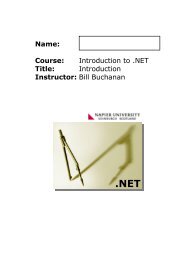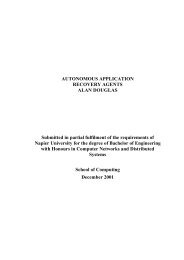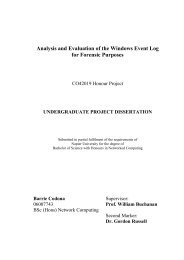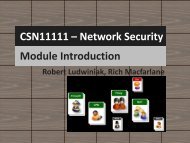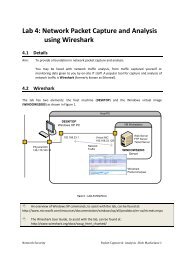Honours Project: - Napier University
Honours Project: - Napier University
Honours Project: - Napier University
You also want an ePaper? Increase the reach of your titles
YUMPU automatically turns print PDFs into web optimized ePapers that Google loves.
Gregory Huet<br />
<strong>Honours</strong> <strong>Project</strong><br />
99034735 Dr. William Buchanan<br />
6.3.1 Online capabilities:<br />
Sending and receiving e-mail via your PDA or Handheld PC is easy and almost a standard<br />
feature on palm devices. Most palm device manufacturers can install communications<br />
software if your device does not come with it and there are many software companies<br />
producing compatible communications software. Infrared ports, designed to be used with a<br />
PC, access e-mail at home or the office. If users want to be able to send and receive e-mail on<br />
the go they may have to install a modem. If they are using your office e-mail they will<br />
probably have to have additional software installed to make their palm device compatible with<br />
the office's system.<br />
This could start to eat up ROM and RAM quickly because they may also have to install<br />
software to access AOL, Hotmail, Yahoo, or other internet mail services. If you get a palm<br />
device and are thinking about using e-mail check to be sure that there is enough memory to<br />
run the manufacturers software and any additional programs that might be necessary.<br />
Modems are standard features on HPCs but are less common on PDAs. While users can get an<br />
internal modem for your PDA it is probably more cost effective to get either a clip-on or an<br />
in-cradle external modem. They are less convenient if you are on the road but the cost<br />
difference should make up for it.<br />
Since staying in touch where ever they are is the name of the game these days users may want<br />
to consider a wireless modem. Most metropolitan areas are set up to Handheld wireless<br />
modems in palm devices. Wireless modem speeds are slower than landlines almost by half,<br />
but you are not sending or receiving even close to the same amount of data.<br />
Web surfing capability is still a few years away. With the larger Handheld PCs users can<br />
browse the Web almost as if they were on a desktop, albeit with a much smaller screen and<br />
slower speeds. Most services have side stepped the technical problems by offering stripped<br />
versions of web access. 3Com does this by cutting out the graphics and providing just text;<br />
another way is partially scrollable screens. Because the screens are so small Handheld PC and<br />
PDA manufacturers provide software that accesses only certain web pages and download<br />
specific information such as stock prices, sports scores, and weather on standardised<br />
templates. Wireless access by non-PC devices is growing in demand and providers are<br />
working to have a usable and affordable system for easy access in the next few years.<br />
6.3.2 PDA vs. HPC<br />
Palm devices are usually referred to as either PDAs or HPCs. The two are very different and<br />
have been designed and marketed for different uses. Depending on what you are going to be<br />
using yours for will help you decide on which one to get.<br />
HPC:<br />
Handheld personal computer, also called business organisers, look very different from the<br />
PDAs. For starters they have a keyboard, albeit very small, and fold closed like a laptop. The<br />
progression of the HPC goes something like this, the home computer begat the laptop and in<br />
turn, the laptop begat the HPC. Each successive generation gives up function for mobility.<br />
Colour screens are pretty much the standard on HPCs as well as voice recorders, internal<br />
microphones, PC/Flash Card slots for added storage, infrared transceivers, internal modems,<br />
and rechargeable batteries. Some of the newer HPCs have been injected with steroids and are<br />
50


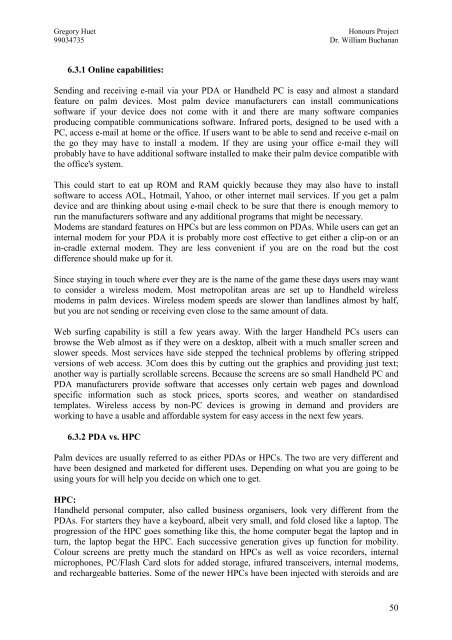
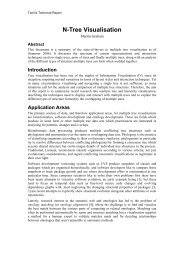
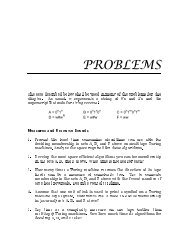
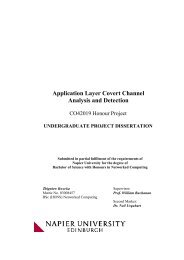

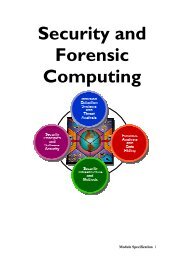

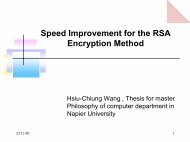
![Unit 5. Switches and VLANs [PDF]](https://img.yumpu.com/34422504/1/184x260/unit-5-switches-and-vlans-pdf.jpg?quality=85)
